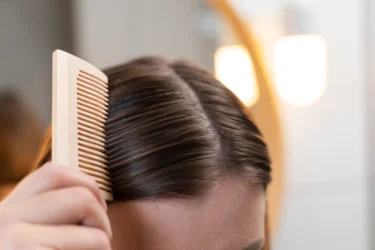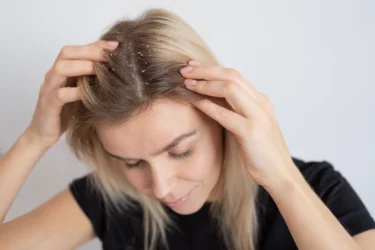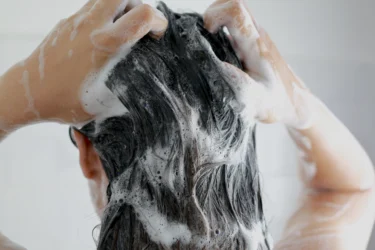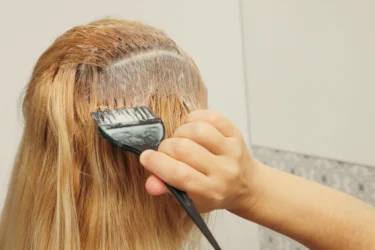9 Essential Monsoon Hair Care Tips For You!
By Dr. Raina N. Nahar +2 more

Get,

to manage your symptom
Get your,


4 Cr+ families
benefitted

OTP sent to 9988776655



You’ve successfully subscribed to receive
doctor-approved tips on
Whatsapp

Get ready to feel your best.

Hi There,
Download the PharmEasy App now!!


Register to Avail the Offer
Send OTPBy continuing, you agree with our Privacy Policy and Terms and Conditions

Hi There,
Sign up on PharmEasy now!!
Trusted by 4 crore+ families

OTP sent to 9988776655



You have unlocked 25% off on medicines




Code: NU25

Comments


Leave your comment here
By Dr. Raina N. Nahar +2 more
Table of Contents
After the long hot summer passes, the refreshing monsoon welcomes us, making us feel alive and bringing relief from the scorching heat of the summer season. However, this is also the season in which our body needs some extra care. We probably do take excellent care of our body and skin, but our hair is often neglected, leading to issues like frizziness, hair fall etc. In short, monsoon hair care is essential!
In this blog, we’ll share some simple tips that you can follow to keep your tresses healthy and shiny even during the rainy season.

It is known that monsoons can cause hair damage as the climate is sticky due to excessive humidity1. This increases the probability of dandruff, hair fall, and other problems too. So, your hair needs utmost care.
Follow the below-mentioned tips to keep your hair problems to a minimum this monsoon.

One of the most useful and straightforward hair care tips is to protect your hair and scalp from getting drenched in the rain. If this happens, dry your hair well and wash it when possible. Use a soft microfiber towel that absorbs water rapidly and reduces friction between the hair and the towel, decreasing hair fall.

Applying coconut oil 15 minutes before shampoo helps in preconditioning your hair. A pre-shampoo treatment with coconut oil reduces hair porosity and lessens the water your hair soaks up during washing2. It also helps deal with scalp problems in men and women, although these could be due to several reasons and may need a dermatologist’s consultation.

Diet plays a significant role in keeping your hair healthy. Nutrients protect your hair from damage and help promote hair growth3. Add protein-rich foods like eggs, walnuts, dairy products, and whole grains, along with green vegetables, to your regular diet as they provide shine to your hair. And berries, nuts, spinach, and sweet potatoes are some of the best food for hair growth.
It’s important not to Shampoo hair daily, as there are some oils produced by scalp itself which should not be washed away daily.
Dr. M.G. Kartheeka, MBBS, MD(Pediatrics)

Hair is weaker when wet and more prone to breakage. To protect your strands, avoid rough combing on wet hair; instead, opt for tapered cuts that reduce snapping at the ends, and gently detangle after drying. The key hack: check how your hair breaks during both wet and dry combing to truly understand its strength4.
Choose the right comb (wide-tooth), so it can easily detangle your hair. Make sure the teeth of the comb have enough space in between so that the hair does not break while combing. Also, sharing of combs must be avoided to prevent fungal infections. Clean your comb frequently to avoid hair and scalp infections.

Low ultraviolet index and low humidity might lead to a higher prevalence of dandruff5. Dandruff is a very common cause of hair fall in men and women. Thus, to get rid of dandruff in the monsoon season, try using over-the-counter antifungal shampoos. You can also try some natural ways to get rid of dandruff. If these don’t work, consult a dermatologist as dandruff can occur due to several scalp issues.

One of the simple tips to stop hair breaking during this season is to keep your hair short. This will reduce your hair fall problems by a lot since you won’t be exerting on your roots by pulling down on longer hair. Short hair also reduces the hassle of maintaining it.

During the monsoon season, our hair turns dry, brittle, and frizzy. Due to the extra humidity, hair loses its lustre and volume. Choosing the right shampoo and conditioner, depending on your hair type, will help a great deal to keep your mane manageable6. After shampoo, it is pertinent that you use conditioner to give an added volume and bounce to your hair. Conditioner will also keep your hair shinier and bouncier for a longer time. To finish it all off, use a good hair serum on damp hair that will protect your hair from frizz and roughness.
Monsoon usually causes the scalp to produce more oil and hair may appear oilier than usual, and you may experience more hair fall, washing 3 times per week usually helps.
Dr. Ashish Bajaj, M.B.B.S., M.D. in Clinical Pharmacology and Toxicology.

When stepping outside, always tie your hair in a ponytail or a bun to protect it from getting drenched. This will also prevent frizz and rule out all the additional hair and scalp problems, like itching and bacterial accumulation on the scalp, that may happen if rainwater keeps getting settled on your hair repeatedly.

If your hair is prone to breakage, being dry and brittle, steer clear of colouring your hair during the monsoons. Getting your hair coloured or highlighted can make it even drier and lifeless. Colouring and hairstyling expose your hair to a lot of heating, chemicals, and other treatments that tend to make your hair look dull7,8. However, if you plan on taking good post-colouring hair care, you may consider colouring. Also, minimise the use of hair styling products and heat.
Also Read: Blood Test for Hair Loss: Who Should Get Tested, Types and Prevention
The monsoon season may bring relief from heat, but it also brings unique challenges for your hair. The above hair care tips can be followed during monsoons to keep your hair healthy, safe and lustrous even during the rains. With a little extra care and consistency, you can enjoy the rain with your hair at its best.
Also Read: How to Get Rid of Static Hair Naturally: Home Remedies and Tips
Disclaimer: The information provided here is for educational/awareness purposes only and is not intended to be a substitute for medical treatment by a healthcare professional and should not be relied upon to diagnose or treat any medical condition. The reader should consult a registered medical practitioner to determine the appropriateness of the information and before consuming any medication. PharmEasy does not provide any guarantee or warranty (express or implied) regarding the accuracy, adequacy, completeness, legality, reliability or usefulness of the information; and disclaims any liability arising thereof.
Links and product recommendations in the information provided here are advertisements of third-party products available on the website. PharmEasy does not make any representation on the accuracy or suitability of such products/services. Advertisements do not influence the editorial decisions or content. The information in this blog is subject to change without notice. The authors and administrators reserve the right to modify, add, or remove content without notification. It is your responsibility to review this disclaimer regularly for any changes.
Comments

Leave your comment...

View all comments(3)
You may also like
Thank you, glad you liked it.
Thank you for sharing these amazing tips with us!
You are most welcome. Hope you found it useful.